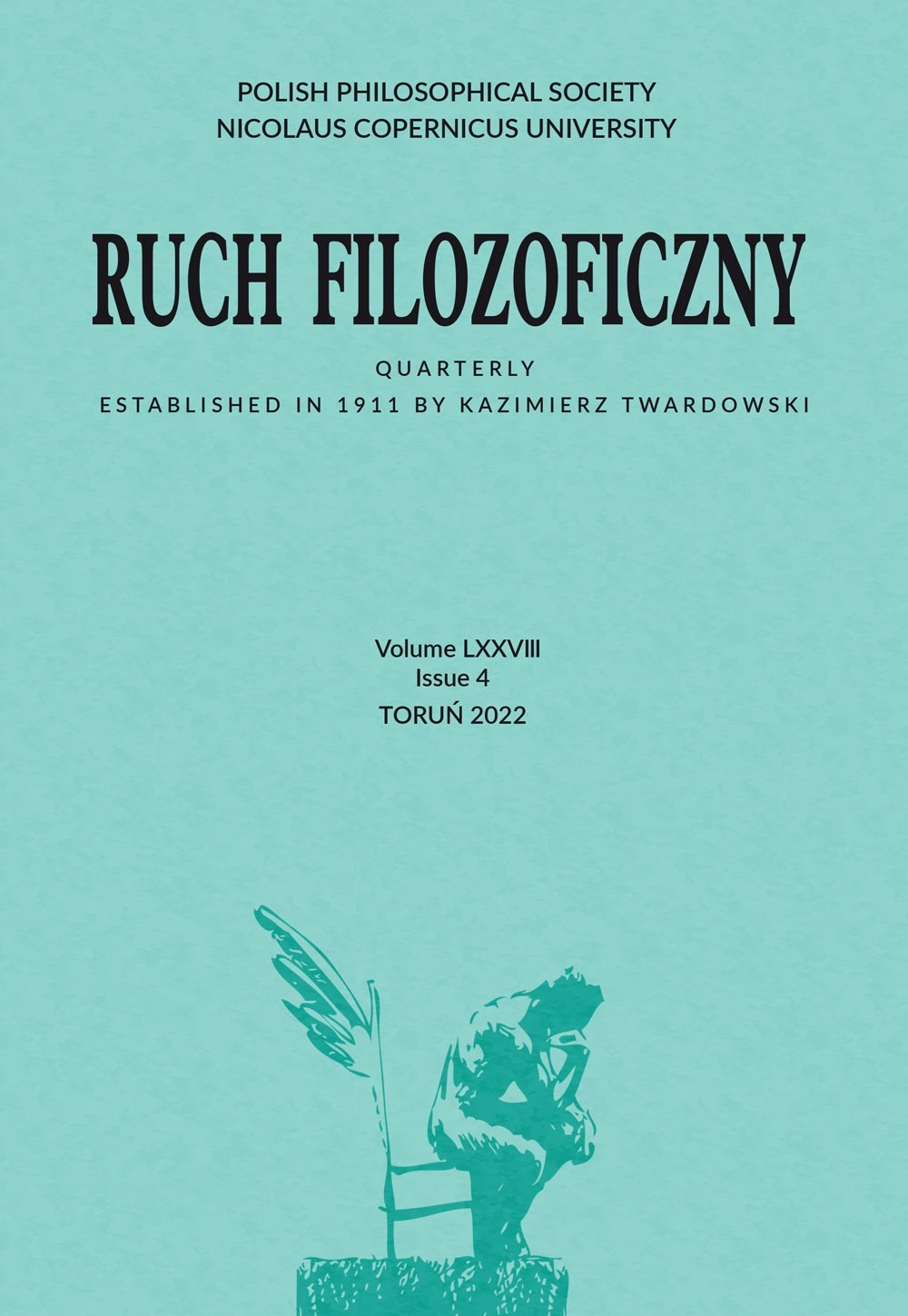The Underexamined Role of Money and How it Undermines Nozick’s Case for Right Libertarianism
DOI:
https://doi.org/10.12775/RF.2022.033Słowa kluczowe
money, distributive justice, Nozick, Locke, free market capitalism, natural rightsAbstrakt
In Anarchy, State and Utopia, Nozick presented his doctrine of right libertarianism, largely a contemporary restatement of Locke’s moral imperative that an individual’s rights to his life, liberty, and property are absolute and place limits on state action. Parallelly, Nozick espoused the free-market system as a framework that not only respects individual rights but ensures material benefits. While the free market results in radical inequalities in holdings and widespread dispossession, Nozick treats the process as morally just, and any state redistribution through taxation as wrong. However, neither Nozick nor his many critics fully considered the role of money in capitalist free markets, an omission I begin to address.
Nozick asserts that money emerges pre-politically through the uncoerced actions of individuals, and that it derives its value from the commodity that underpins it. This conception of money underpins Nozick’s claims that a minimal state can be just and that the free-market system is a moral, efficient, and neutral allocator of resources.
However, Nozick’s approach omits addressing how money’s general acceptability and stability are achieved. Answers can be found in heterodox economic paradigms, which put the state at the center of money creation, rendering money (and the state) incompatible with natural rights. Even if these issues were resolved, by insisting on money’s commodity nature, Nozick ignores the seventeenth century revolution in money, necessitated by the emergence of free-market capitalism and commodity money’s inability to underpin it. In other words, it is not commodity money but credit money that should be the proper object of Nozick’s analysis. I go on to analyze what credit money is, how it arose, and why some form of it is necessary in a free-market context. Ultimately, I argue that it is not compatible with natural rights and is itself redistributive.
Bibliografia
Caffentzis George. (1989) 2021. Clipped Coins, Abused Words and Civil Government: John Locke’s Philosophy of Money. London: Pluto Press.
Desan Christine. 2014. Making Money: Coin, Currency, and the Coming of Capitalism. Oxford: OUP.
Graeber David. 2014. Debt: The First 5000 Years. New York–London: Melville House.
Ingham Geoffrey. 2004. The Nature of Money. Cambridge, UK–Malden, US: Polity.
Innes A. Mitchell. 1913. “What is Money?” The Banking Law Journal (May): 377–408.
Keynes John Maynard. 1930. A Treatise on Money. New York: Harcourt Brace.
Locke John. (1690) 1980. Second Treatise on Government. Indianapolis, IN–Cambridge, UK: Hackett.
Martin Felix. 2013. Money: The Unauthorised Biography. London: Bodley Head, 2013.
Mauss M. (1925) 2002. The Gift, transl. W. D. Halls. New York–London: Routledge.
Menger Karl. 1892 (2000). “On the Origin of Money,” transl. Caroline A. Foley. The Economic Journal 2(6): 239–255.
Nozick Robert. 1974. Anarchy, State and Utopia. New York: Basic Books.
Polanyi Karl. (1944) 2001. The Great Transformation: The Political and Economic Origins of Our Time. Boston: Beacon Press.
Schumpeter Joseph A. (1954) 2006. History of Economic Analysis. Taylor Francis e-Library.
Skidelsky Robert. 2019. Money and Government: A Challenge to Mainstream Economics. Kindle version: Penguin Random House.
Smith Adam. (1776) 2010. The Wealth of Nations. US: Simon & Brown.
Smithin John. 2018. Rethinking the Theory of Money, Credit, and Macroeconomics: A New Statement for the Twenty-First Century. London: Lexington Books.
Wray L. Randall. 2004. Credit and State Theories of Money: The Contributions of A. Mitchell Innes, ed. L. Randall Wray, Edward Elgar. Cheltenham, UK–Northampton, MA: Edward Elgar.
Wray L. Randall. 2012. “Introduction to an Alternative History of Money.” Working Paper No. 717 of the Levy Economics Institute of Bard College and University of Denver. Access 28.06.2022. http://www.levyinstitute.org.
Wray L. Randall. 2014. “From the State Theory of Money to Modern Money Theory: An Alternative to Economic Orthodoxy.” Working paper 792 of The Levy Economics Institute of Bard College and University of Denver. Access 28.06.2022. http://www.levyinstitute.org.
Pobrania
Opublikowane
Jak cytować
Numer
Dział
Licencja
Prawa autorskie (c) 2023 Helen Grela

Utwór dostępny jest na licencji Creative Commons Uznanie autorstwa – Bez utworów zależnych 4.0 Międzynarodowe.
Statystyki
Liczba wyświetleń i pobrań: 574
Liczba cytowań: 0



